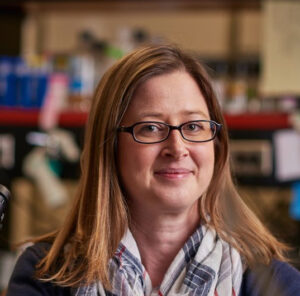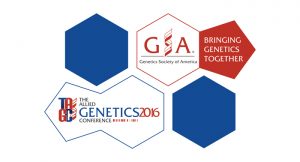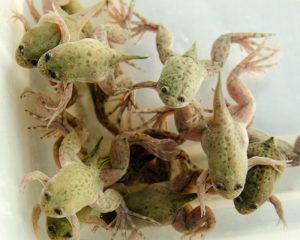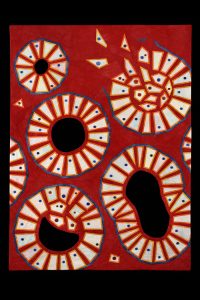Enter your address to receive notifications about new posts to your email.
Featured
-
Featured
GSA steps up its focus on early career scientists
Sonia Hall is working with the GSA in a newly-created role as Program Director for Early Career Scientist Engagement. Executive Director Tracey DePellegrin spoke with Sonia about why focusing on helping this group of scientists is so important, including plans to start a GSA steering committee led by graduate students & postdocs. Sonia received her…
-
Featured
Even though Gregor Mendel asks not to be rediscovered when he hears us…
To paraphrase the Car Talk guys, “Well, it’s happened again—you’ve wasted another perfectly good year reading frameshifts.” Although not as much as I have in writing it. And perhaps this hasn’t been “perfectly good” as years go. But as far as the GSA goes, we’ve dealt with some major events this year. First,…
-
Featured
TAGC Videos & Meeting Report: The Allied Genetics Conference online!
The Allied Genetics Conference was an experiment for the GSA. We brought together under one roof seven separate research community meetings: C. elegans, ciliate, Drosophila, mouse, yeast, zebrafish, and population, evolutionary, and quantitative genetics. Today we are launching another experiment, this time, to communicate results presented at the meeting. Thanks to a generous grant from the…
-
Featured
Sex chromosome turnover in frogs hints at evolutionary patterns
Sex chromosomes have evolved from autosomes hundreds of times across the tree of life. In mammals, sex is controlled by the Y chromosome-linked gene SRY, which triggers the development of male anatomy. Sex determination in most mammals is extremely conserved; essentially all marsupials and placental mammals share the same pair of X and Y chromosomes…
-
Featured
GSA-Art: Shruthi Vembar
Guest post by Shruthi Vembar. GSA-Art features the creative works of scientists. Read more in GSA President Stan Fields’ call for submissions. If you would like to submit your own work or nominate someone else’s, please send an email to GenesToGenomes@genetics-gsa.org with “GSA-Art” in the subject line. Madhubani painting, also known as Mithila painting, is an art form that originated in Northern…
-
Featured
Cold-loving fungi fight frostbite, but can’t take the heat
To the unaided eye, Antarctic soil and alpine glaciers may appear to be barren wastelands devoid of life. But some microbes call hostile habitats like these home. Research on one such organism, published in the latest issue of G3, reveals some of the mechanisms behind cold adaptation—and explains why these otherwise hardy creatures can’t survive…
-
Featured
GSA-Art: Bonny Brewer
Guest post by Bonny Brewer. GSA-Art features the creative works of scientists. Read more in GSA President Stan Fields’ call for submissions. If you would like to submit your own work or nominate someone else’s, please send an email to GenesToGenomes@genetics-gsa.org with “GSA-Art” in the subject line. I have been in love with DNA for as long as I can remember.…
-
Featured
Another letter to Mr. Trump
Dear President-elect Trump, It’s me again. I wrote you last week to say why you should make science a cornerstone of your administration. Don’t feel bad that with all the hubbub of starting up your new job, you haven’t had a chance to get back to me yet. But as I’ve read about some of…
-
Featured
As we face uncertainty, let’s stand together
Given the outcome of the US presidential election, some of our members have asked us if they should fear an erosion of federal support for research funding. Others have asked more pointed questions, such as: What is the GSA doing to defend the interests of geneticists? Young scientists, they’ve told us, are now even more…
-
Featured
Dear Mr. Trump
Dear President-elect Trump, Congratulations on your victory. As a fellow president myself (albeit with a much smaller constituency), I can remember well those early post-election days, when the surge of heady enthusiasm for all those things I hoped to accomplish had not yet been eroded by the practicalities of actually governing. But as a geneticist…
-
Featured
The Genetic History of Horses
Like any revolutionary technology, domestic horses changed human society. The incredible speed and strength of these animals opened up new opportunities to spread trade, language, and culture. For thousands of years, horses have been helping build human society by pulling wagons and plows and carrying soldiers and travelers on their backs. Horse husbandry changed humanity,…






![By 23am.com (Antarctica Sailing Trip) [CC BY 2.0], via Wikimedia Commons.](https://s36063.pcdn.co/wp-content/uploads/2016/11/rsz_1antarctica_sailing_trip_pct283253678755pct29-300x201.jpg)



